education
September 7, 2015

Published by Tamoha Binte Siddiqui at Sep 07 2015
Categories
According to the UN Convention on the Rights of the Child, Article 31, “every child has the right to rest and leisure, to engage in play and recreational activities”. It is with the goal of ensuring this right that BRAC Institute of Educational Development (BIED) started piloting 50 play centres in both rural and urban areas of Bangladesh since June 2015. This large-scale project, which will be piloting play centre models for the next five years, will cater to children as young as six months, to up to five years of age.
July 13, 2015
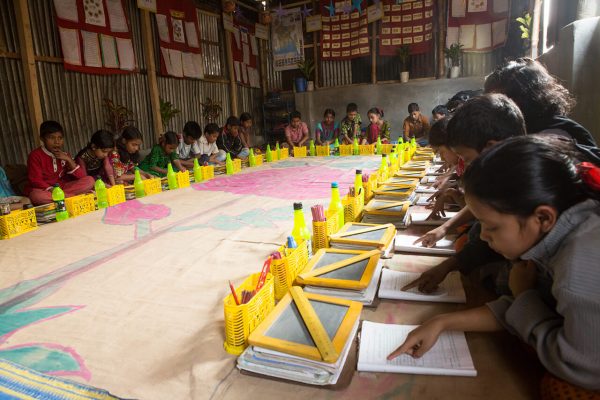
Published by Bithun Tasnuva Mazid at Jul 13 2015
In the coming years, countries and communities will bear the brunt of climate change. Future projections of the rise in temperature and sea level along with increase in natural disasters are feared. However, we tend to forget that it is the future generation who will have to live through these consequences. It is widely asserted that the poor, in particular children, will be most affected – greater physical exposure to natural hazards and increased risks of health being two of the main reasons.
June 29, 2015

Published by Tahsinah Ahmed at Jun 29 2015
In Bangladesh, there has been significant improvement in primary and secondary education. But the fact remains that as many as four million children remain out of school each year, mainly due to challenges of accessibility and affordability or being compelled to choose between earning and education.
May 28, 2015
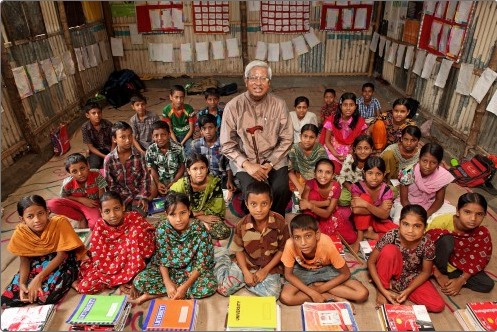
Published by Sir Fazle Hasan Abed KCMG at May 28 2015
As the World Education Forum meets in Incheon, South Korea, it is time to confront some unsettling facts about the state of education in the world today. More than 91 per cent of children of primary school age are now enrolled in school, but progress on educating the remaining 9 per cent has slowed to a near standstill. The numbers have barely moved since 2005, and girls are still disproportionately left behind.
May 6, 2015
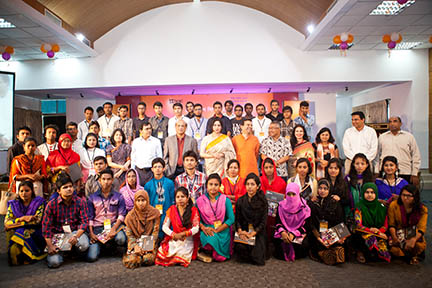
Published by Sameeha Suraiya at May 06 2015
In Bangladesh, far too many students do not get the chance to go to college. In a country where 30 per cent of the population are young (10-24 years), it remains evident that much of the potential remain untapped, and too many young voices go unheard. Medhabikash, a scholarship programme that funds meritorious and underprivileged students, offers a second chance at learning- the kind that transcends social and economic boundaries.
April 13, 2015

Published by Shuprova Tasneem at Apr 13 2015
In Dhaka, it is a common sight to see street children running around, dodging vehicles, and weaving in and out of traffic jams. Some beg for money while others attempt to sell flowers, stickers or candy. It is also common to see street children carrying loads, often too heavy a burden for their little shoulders. But these are only a few examples of occupations street children are forced to take on. Many homeless boys and girls at BRAC’s children’s centres for the urban street children programme (USCP) were involved in similar jobs before being taken in, in 2013.
March 23, 2015

Published by Saad Adnan Khan at Mar 23 2015
Categories
To create a more fluid space in the classroom, where learning is not hierarchical, lessons on sexual and reproductive health and rights and gender (SRHRG) and psychosocial counselling are designed to be more art and activity-centric at SSCOPE schools. These schools are designed by the Institute of Educational Development of BRAC University to address the high level of dropout at secondary schools.
March 8, 2015
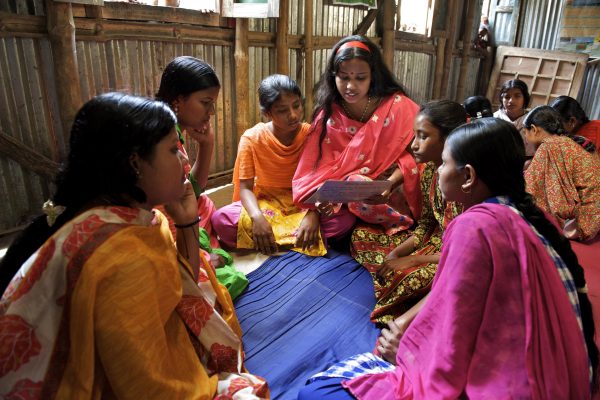
Published by M Niaz Asadullah at Mar 08 2015
According to UNESCO, South Asia is home to 335 million adolescents between the ages of 10-19 years, but only 51 per cent attend secondary school. Schooling is important for realising the full potential of learning in adolescence. However, simply increasing the number of students enrolled at school may not be enough in countries where teachers are poorly trained or not even present to teach in the classroom. Inadequate school quality combined with household poverty may limit the potential gains from schooling.
February 25, 2015

Published by Sameeha Suraiya at Feb 25 2015
Categories
In some Bangladeshi schools, talking about problems is getting easier, and it’s about time. Especially when more than half of the students drop out of school once they complete their primary education. Various social pressures faced by adolescents contribute to the high level of dropouts.
February 23, 2015
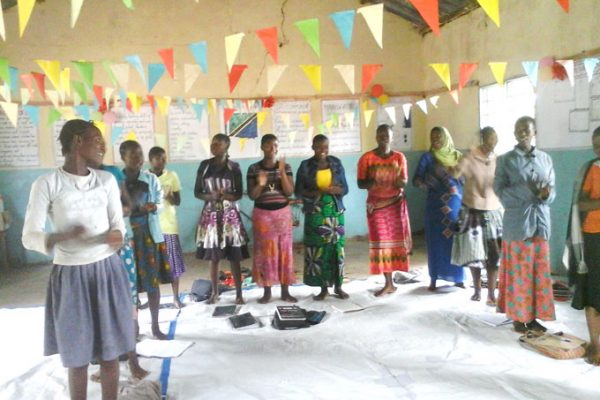
Published by Rafiath Rashid Mithila at Feb 23 2015
Maria Joseph got pregnant when she was in class 7, and had to drop out of school. She stopped stepping out of home and spent her time helping with household chores. Not too long ago, she heard about BRAC’s study clubs from a friend. She soon became a member of a club in Kitunda district. “I had lost all hope. When I got pregnant, everybody told me I had ruined my life. I was shunned by my family and friends. Thanks to the study club, I now have hope for my future and my baby’s future. People will respect me now.”
February 2, 2015
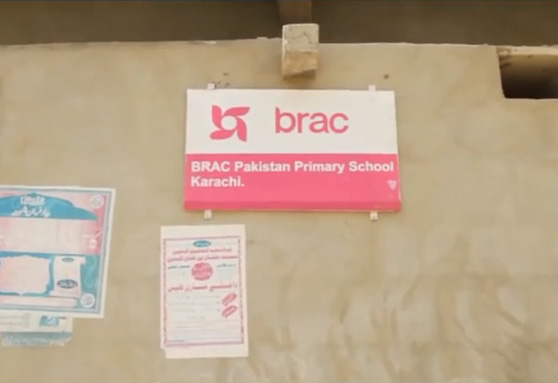
Published by Zilay Huma at Feb 02 2015
The Peshawar incident in Pakistan in which 145 people including 132 children were massacred in a school, has shocked the world. It gave rise to various debates such as whether children, especially girls, residing in conflict-prone areas should remain at home to stay safe from the Taliban. Amidst this environment of uncertainty, there are those who consider a child’s right to education to be above everything else. Organisations like BRAC still choose to continue working in the conflict-stricken, hard-to-reach areas across Asia and Africa.
January 20, 2015
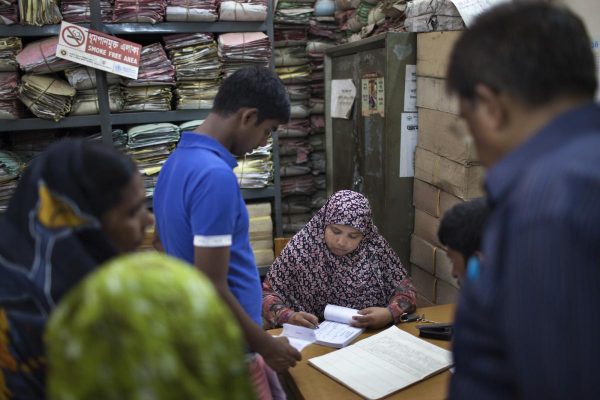
Published by Paul McCann at Jan 20 2015
Categories
This post originally appeared on the blog of the World Justice Project. The World Justice Project is an institutional partner of the Namati Justice Prize along with BRAC and the UN Development Programme. The Namati Justice Prize was created to shine a light on the ways people find to secure justice. This post also appeared on the Namati blog.

